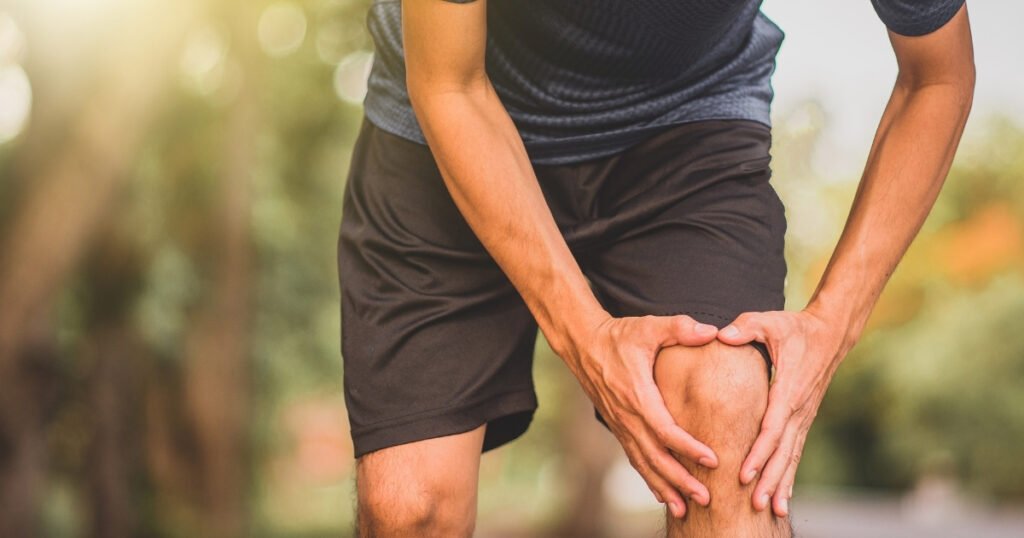Joint Pain in Young Adults: Causes, Symptoms, and Effective Treatments
Joint Pain – Being a specialist based in India I’ve noticed an increase in joint problems among young adults lately. While typically associated with age it’s now quite common for individuals in their 20s and 30s to grapple with issues like pain and stiffness. Fret not! There are plenty of ways to enhance mobility and keep joints healthy at an age.
Understanding the Causes of Joint Pain Problems in Young Adults
Factors play a role in this phenomenon:
- Sedentary Lifestyle: The prevalence of periods of sitting and screen time has led to weakened muscles and inflexible joints.
- Obesity: Excess weight exerts added strain on joints hastening their deterioration.
- Sports Injuries: Engaging in activities is vital. Intense sports or improper training methods can result in lasting joint injuries.
- Underlying Medical Conditions: Autoimmune disorders such as arthritis can impact individuals leading to inflammation and discomfort in the joints.
- Poor Ergonomics: Slumping while seated or using devices can strain not your neck but also your back and other joints.
**Early Warning Signs**
Don’t overlook these signs:
- Joint Discomfort or Rigidity: pain or trouble moving a joint especially after periods of inactivity.
- Swelling: Swollen area around a joint can suggest inflammation.
- Restricted Range of Motion: Sensation of decreased mobility in a joint.
- Clicking or Popping Noises: While not always worrisome these sounds may indicate concerns.
- Weakness: Trouble grasping objects or performing tasks.
**Taking Action to Improve Joint Health**
Here are steps to enhance the well-being of your joints:
Stay Active Choose Wisely: Regular physical activity is crucial for health. Opt for low impact exercises such as swimming, cycling or yoga. If you engage in high impact sports, ensure proper techniques and protective equipment are used.
Manage Weight Effectively: Even a small reduction in weight can significantly alleviate stress on your joints if you are overweight or obese. Seek advice from a nutritionist, for support.
Maintain Posture: Be mindful of your sitting, standing and movement habits. Consider investing in a chair and workspace if you have a desk bound job.
Incorporate Regular Stretching: Gentle stretching routines can boost flexibility. Alleviate stiffness. Make sure to warm up your muscles before starting any activity to avoid getting injured. Strengthening your muscles, around the joints can provide them with support and protection. It’s a good idea to consult a qualified trainer for a safe and effective program. If you’re dealing with pain or suspect an underlying issue it’s wise to seek advice from a doctor or orthopedic specialist for early diagnosis and treatment.
Let me share a story with you: I once helped a software engineer who had severe knee pain from long hours of sitting and lack of exercise. We created a customized plan involving therapy, lifestyle changes and specific exercises. After a few months he saw improvements in his pain and mobility allowing him to get back to his daily routines and even enjoy recreational sports again.
Frequently Asked Questions (FAQs)
1. Can joint problems be cured completely in young adults?
A – While complete cure may not always be possible, with proper diagnosis and treatment, many young individuals can manage their joint pain effectively and maintain a good quality of life.
2. What are the treatment options for joint pain in young adults?
A – Treatment options vary depending on the underlying cause and severity of the pain. They may include lifestyle changes, physical therapy, medications, injections, and in some cases, surgery.
3. Is surgery the only option for severe joint damage in young adults?
A – Surgery is usually considered as a last resort after conservative treatment options have failed. Minimally invasive procedures are often preferred for young adults to minimize downtime and facilitate faster recovery.
4. How can I prevent joint problems in the future?
A – Maintaining a healthy weight, staying physically active, practicing good posture, and avoiding repetitive strain injuries are key to preventing joint issues.
5. What should I do if I experience sudden or severe joint pain?
A – Seek immediate medical attention if you experience sudden, severe, or unexplained joint pain, especially if it’s accompanied by swelling, redness, or fever.
Book an appointment:
Mobile: 8095 37 0000
Telephone: 080 2503 4444, 080 2503 4455
Email: info@svasthahospital.com
Remember, you’re not alone on this journey. At Svastha, we’re all about helping you regain independence and find joy in movement. Let’s walk this path together, one step at a time. Best hospital in whitefield.

